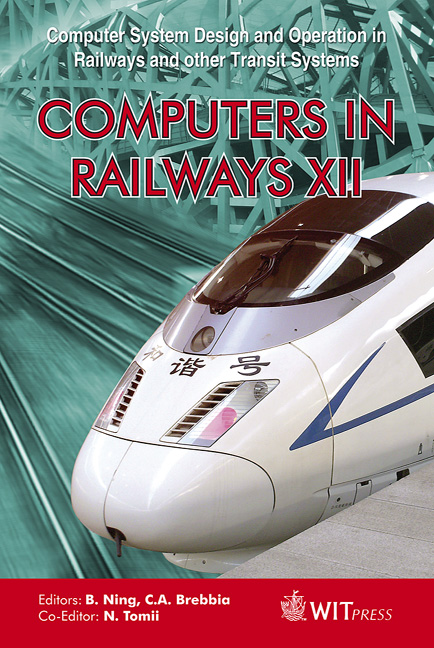Systematic Analyses Of Train Run Deviations From The Timetable
Price
Free (open access)
Transaction
Volume
114
Pages
12
Page Range
651 - 662
Published
2010
Size
749 kb
Paper DOI
10.2495/CR100601
Copyright
WIT Press
Author(s)
T. Richter
Abstract
On Rail Net Denmark’s network, a Delay Report is created if a train is delayed more than 4 minutes and 59 seconds. All delayed trains are attached to a Delay Report describing the cause and consequences of the incident. The Punctuality Reporting System focuses on the causes of initial delays and much effort is spent analysing those. However, until now, much less effort has been spent on systematically analysing the train running themselves, extracting information on where in the network trains are delayed and which trains are delayed. After a description of the present delay follow-up system and its systemic weakness (section 3 and section 4), a toolbox of analytical methods developed to deal with this weakness is presented. The methods use a percentile approach aggregating either deviation from the timetable at measuring points or difference in deviation between measuring points. The aim is to identify the measuring points where the largest delays occur for individual trains and train systems so that the parties responsible can act. After a description of the methods (section 5), examples of the new types of analysis are demonstrated (section 6), e.g. identification of local speed restrictions which influence the punctuality, the worst performing trains and reasons for their delays. It is thus shown how new information can be extracted from the train run history. The percentile approach is orthogonal to the classical analysis of cause of delay above a threshold and should not be regarded as a substitute but as a valuable supplement. One of the reasons for the successful implementation is a general shift in the corporate mindset within Rail Net Denmark towards a higher KPI focus. Keywords: railway operations, systematic follow-up, delay, punctuality, service quality, robustness, realised operations, organisational implementation.
Keywords
railway operations, systematic follow-up, delay, punctuality, service quality, robustness, realised operations, organisational implementation





